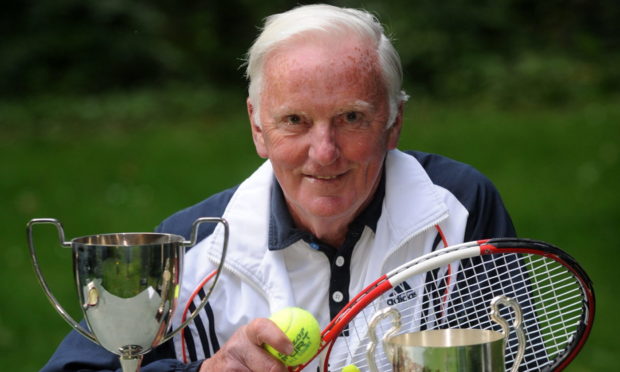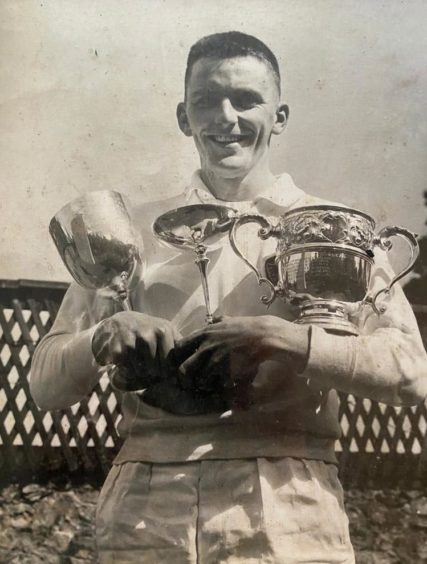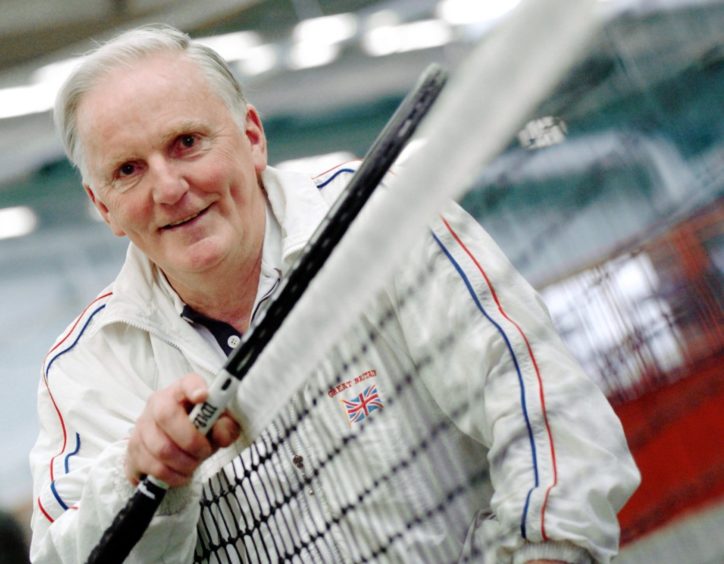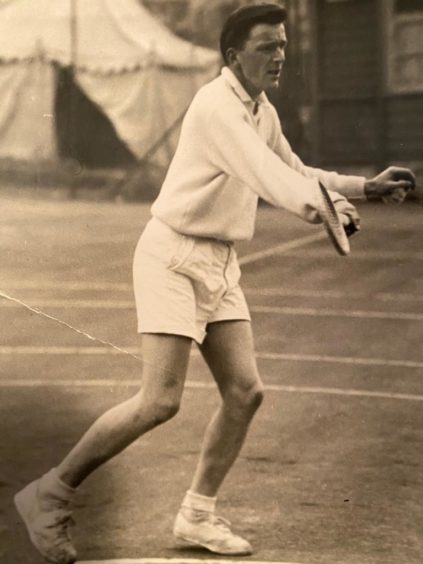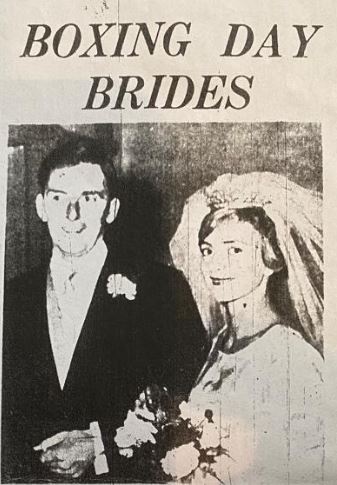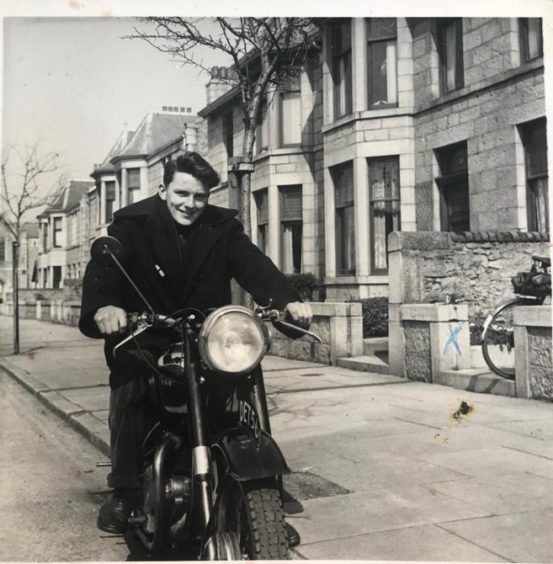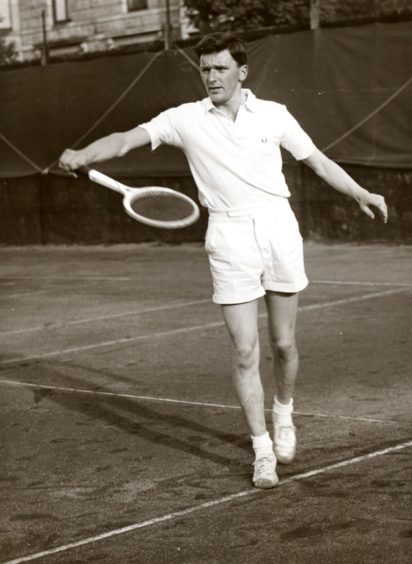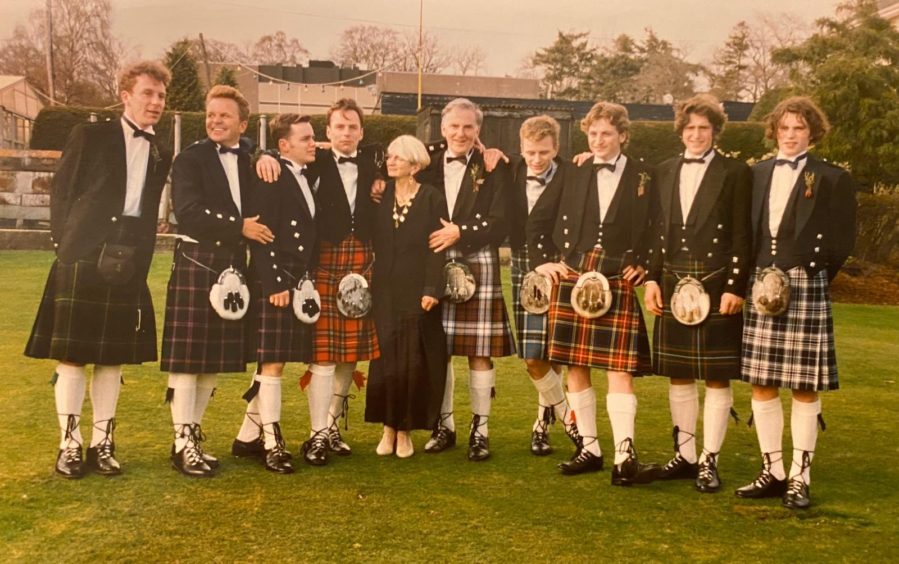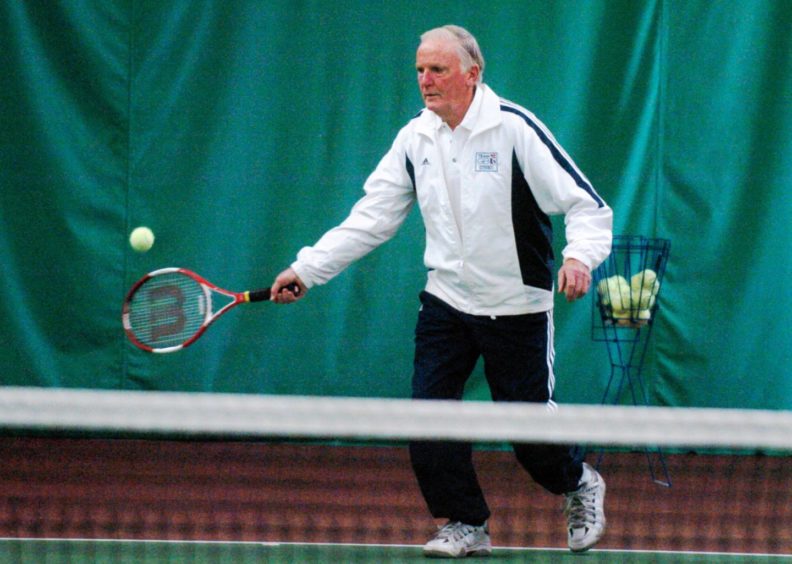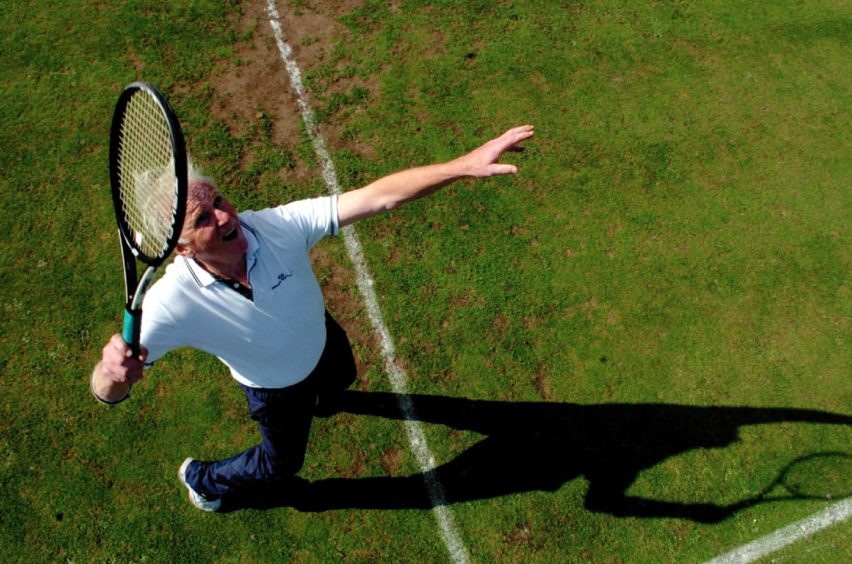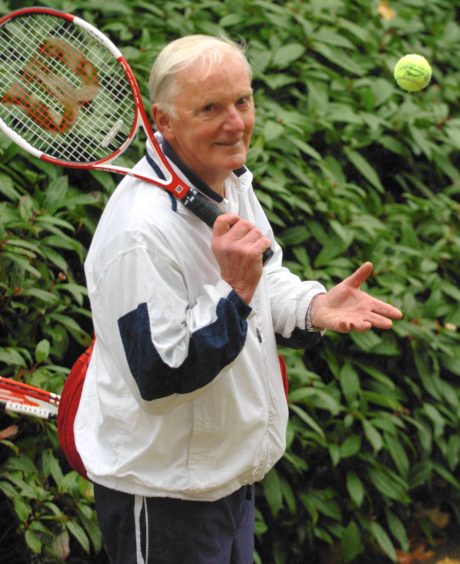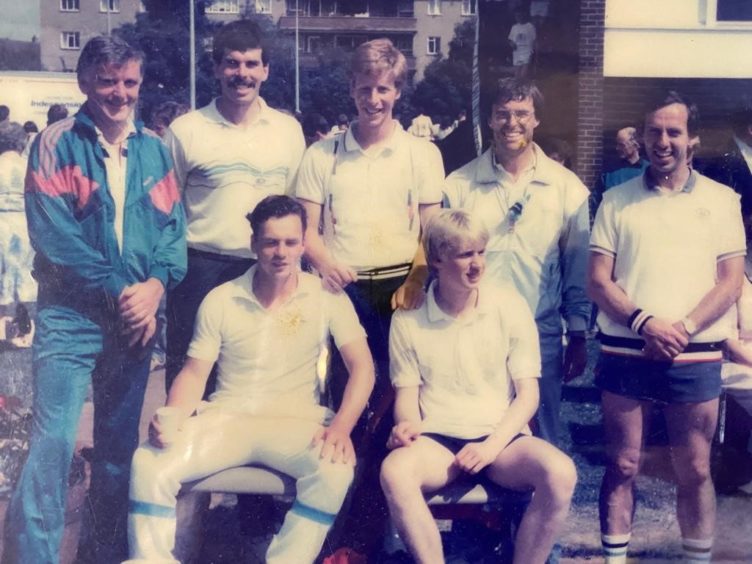Scotland has grown accustomed to tennis success in recent years with the remarkable exploits of Andy and Jamie Murray.
But long before the Dunblane duo were challenging for honours, and the reinvigorated Andy was putting crowds through the wringer on Centre Court at Wimbledon, a Granite City maestro blazed his own Grand Slam trail.
Jimmy Wood was a classic Scottish lad o’ pairts – somebody with an interest in and penchant for everything from art and education to family and sport.
And, in particular, tennis, because this doughty Aberdeen competitor won no less than seven Wimbledon titles while he was in his 50s, 60s and 70s.
Tending the net in two sports
He was the north-east champion in his pursuit a remarkable 25 times and was capable of dismantling and demolishing opponents half his age.
And he competed in the prestigious International Tennis Federation World Super-Seniors in Australia.
A former goalkeeper at Banks O’Dee FC, Mr Wood, who died last year aged 85, was a well-known figure throughout the region and he once explained why tennis meant so much to him.
He said: “It’s a game from the cradle to the grave, from being a tiny kid to an old-age pensioner like myself.
“I won my first senior title at the National Veterans Grass Courts Championships in 1994 and I’ve been adding to it ever since.”
As a member at Cults TC for more than 70 years, Mr Wood packed plenty of other activities into his life before he was diagnosed with Parkinson’s.
He and his wife, Jacqueline, had eight sons – Stephen, David, Michael, Jimmy, Robbie, Peter, Calum and Sean – and they have all enjoyed picking up a racquet and performing on court.
Sport is in their DNA and Calum has gone on to represent Scotland at hockey and now holds a senior position in his country’s sporting firmament.
Jimmy was artist and sportsman
However, David Wood told me how his father had also been a popular teacher and talented sculptor whose work had been exhibited on the national stage.
He said: “Dad packed a lot into his life and although he was delighted to be winning at Wimbledon and playing over in Australia, tennis was just one of his many interests.
“He was also the head of the art department at Aberdeen College and was a sculptor and a painter, somebody whose work went on public display at the Scottish National Portrait Gallery in Edinburgh. He was very proud of that.
“Indeed, he threw himself into everything that he did and while he was a bit surprised at the media interest when he started winning the titles at Wimbledon, he took it all in his stride.
“Around 15 ago, Scotland was desperate for a Wimbledon champion, and the game started gaining more publicity and time in the spotlight.
“The Murray lads came along later and they have achieved incredible success on the world stage, which has been terrific to watch in the last 10 years.
“But, before them, my dad loved playing the game and he would travel down to London to compete at Wimbledon every summer. The trophies kept coming back up.
“Mum was with him every step of the way, both before and after he contracted Parkinson’s and she was always very proud of him.”
Colin Fleming, the Scottish player who won eight ATP doubles titles and participated with mustard-keen relish for Britain in the Davis Cup, said he regarded Mr Wood as a “legend”.
He added: “I remember travelling up to play in the north-east and Jimmy was still winning titles even in his 70s. He was so intense on court, but it paid off.
“He was also somebody who poured a large part of his life into Cults Tennis Club and he was always committed to helping the sport at the grassroots.
“He was obviously from a different generation, but we all knew about him and when you look at what he achieved over such a long period, there is no doubt in my mind that he was a legend in Scottish tennis.”
It has been said often enough that sport can be a unifying force, but Jimmy Wood was far more than just a local sports star.
Calum Wood, a high performance manager at sportscotland in Stirling, contacted me and confirmed that his father never wanted to restrict himself to just one speciality.
On the contrary, he was a force of nature with an irrepressible philosophy that you only live once and you had better pack as much into your life as you possibly can.
He had gifts which might have taken him to a higher level in a different era. And he certainly possessed the drive and determination to flourish wherever he ventured.
Yet he was also one of the stalwart members of Cults LTC, and worked tirelessly to promote the organisation on his journey across the globe.
No wonder Gareth Rennie, the head coach at the Aberdeen organisation, described Jimmy as the heartbeat of the club for seven decades.
He said: “It’s difficult to sum up exactly what impact he had on the local tennis community, but the fact you can mention his name to a twenty-something or an 80-year-old and they will know who he was is testament to what he achieved.
“Jimmy had a massive influence on those who played with or against him and playing at such a high level for so long meant he transcended generations.
“I often hear stories of how Jimmy put a young whippersnapper in their place by beating them despite the 40-plus year advantage they may have had.
“He never gloated or disrespected the opponent, but simply took care of business with his usual efficiency, fuelled by immense talent and an even stronger will to win.
“We often hear about ‘legacy’ these days with Andy and Jamie Murray doing their absolute best to leave a mark on Scottish tennis that will last long after their professional careers have come to an end.
“Jimmy’s legacy was never manufactured, but his contribution to future generations came from the example which he set.
“Other local players had a bona fide international champion who could be seen playing week in week out right on their own patch, someone who managed to balance the difficult act of being a ruthless winner alongside being a true gentleman on and off the court.”
In another generation, Mr Wood might have been offered the chance to turn professional and join the ATP Tour and nobody doubted his ability.
Jimmy was happiest in Aberdeen
There’s a very strong possibility that he would have been a success and, who knows, potentially emulated the exploits of Andy Murray in recent times.
But he never bothered about these things and preferred to pursue his interests in as many fields as possible.
Growing up in the amateur era, he was content to stamp his imprint on the game at local level and all his prodigious international honours arrived when he was in his 50s, 60s and 70s.
As Rennie said: “He was honoured with lifetime membership for all he had achieved while flying the flag for Cults across the world.
“And he will continue to be used as a benchmark for success, an example of what can be achieved when you set exacting standards of yourself and leave no stone unturned in the pursuit of your dreams.
“A contemporary of Jimmy said to me that, had he lived anywhere else but Aberdeen, the likelihood is he would have played Davis Cup for Great Britain.
“Yet Aberdeen was his home, he loved the city, he was at his happiest here, it was where his family were settled and his achievements simply seem all the greater, given how far removed he was from the traditional heartland of British tennis.”
A local hero and an inspiration to thousands of others. That’s not a bad way to be remembered, is it!
